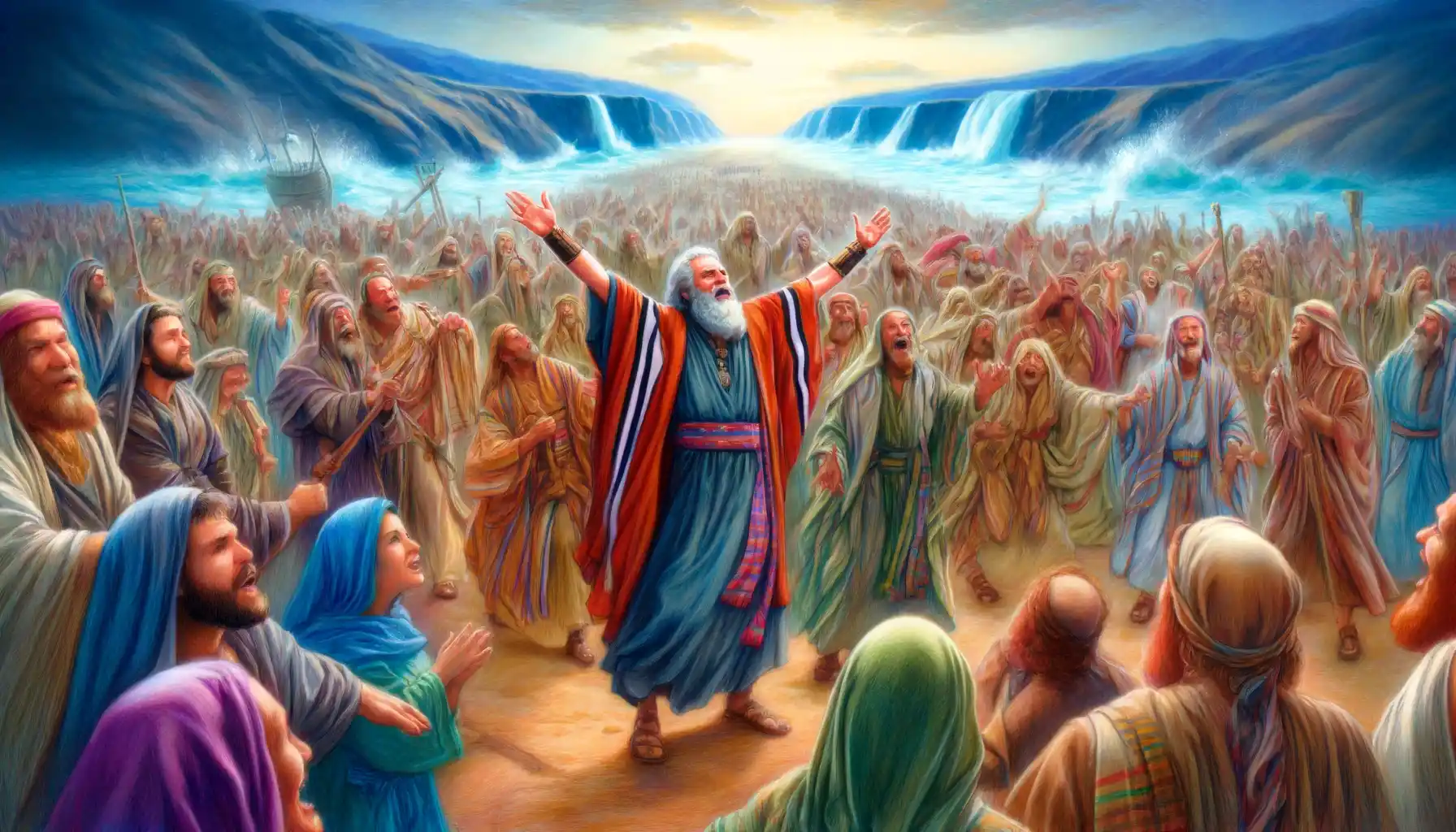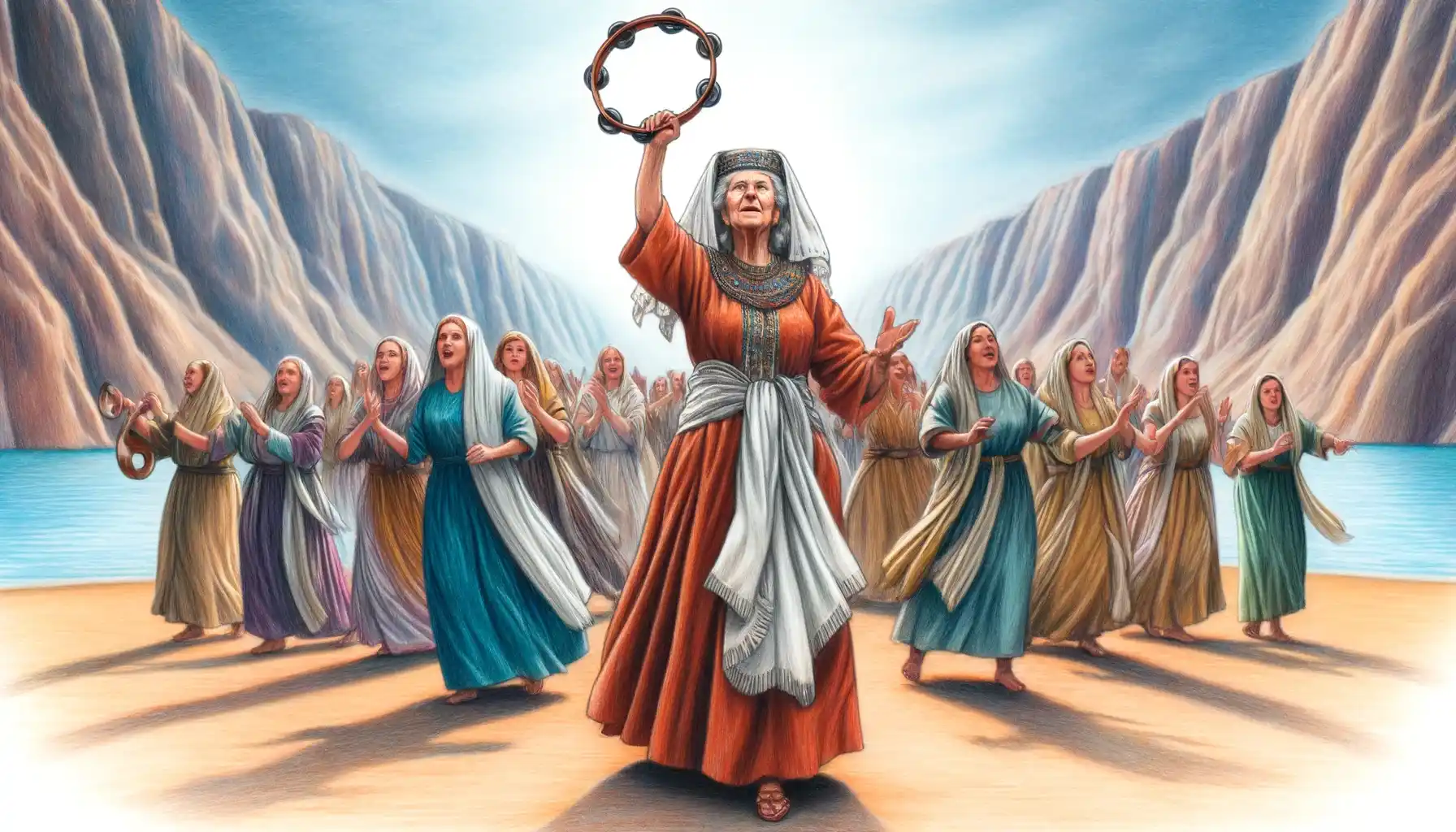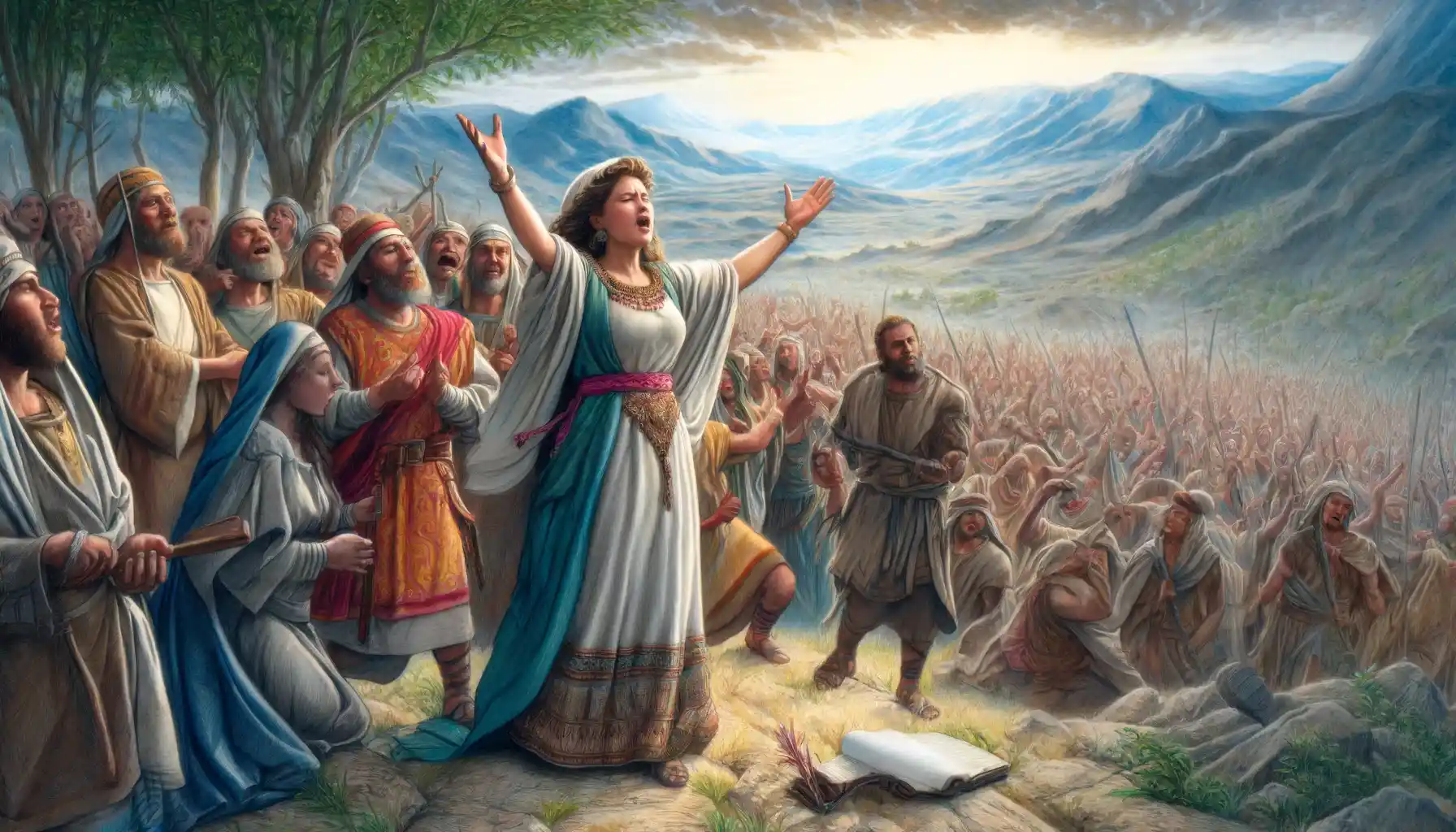“The Song of Solomon” is a profound exploration of human love, uniquely presented within the biblical canon as a series of lyrical poems that delve into themes of love, desire, beauty, and separation, with its vivid imagery and passionate themes inspiring countless works across various artistic forms, and its inclusion in the Bible offers a deeply emotive expression of love’s power and beauty, making it one of the most unique and cherished books of the Bible.
“The Song of Moses,” celebrated in Exodus 15:1-18, is more than a historical recount; it is a theological affirmation of faith in the God who saves and protects, serving as a powerful reminder of the Israelites’ collective identity, formed and sustained by divine acts of salvation, and its enduring presence in religious liturgy underscores its importance as a source of spiritual inspiration and as a doctrinal cornerstone in understanding the nature of God as both protector and liberator.
Though brief, “The Song of Miriam” is a potent articulation of victory, joy, and theological affirmation, commemorating a significant historical event—the Exodus—and celebrating foundational themes such as trust in God’s salvation, the power of communal worship, and the influential role of women in the spiritual life of the community, serving not just as a historical recount but as a lasting testament to the enduring themes of faith and deliverance in the Judeo-Christian tradition.
“The Song of Deborah” serves multiple functions: it is a record of historical events, a theological commentary, a piece of poetic art, and a moral exhortation, encapsulating the interplay between human agency and divine will, and highlighting the complexities of faith, leadership, and community in ancient Israel.




